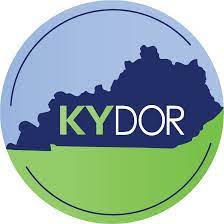Homestead exemption increase is good news for seniors
Published 4:22 pm Wednesday, November 23, 2022
|
Getting your Trinity Audio player ready...
|
TOM LATEK
Kentucky Today
The Kentucky Department of Revenue has set the maximum homestead exemption at $46,350 for the 2023 and 2024 tax periods, an increase of $5,850 over the previous two years. It is the largest increase in savings in the history of the exemption, which is recalculated every two years to adjust for inflation.
To qualify for the homestead exemption, a person must be at least 65 years old during the tax period or classified as totally disabled by any public or private retirement system. The property must also be owned, occupied and maintained as the taxpayer’s personal residence on the January 1 assessment date to be eligible for this exemption.
“The last two years have presented many challenges, as together we have faced a worldwide health pandemic and endured two major natural disasters,” said Gov. Andy Beshear. “The tax savings available through the homestead exemption is an important way we can help protect the homes of our seniors and other vulnerable Kentuckians.”
The amount of the homestead exemption is adjusted every two years in accordance with state law, to compensate for changes in the purchasing power of the dollar. During the 2022 tax year, the exemption provided state and local property tax savings of approximately $258 million for more than 468,000 elderly or disabled Kentuckians, according to the Department of Revenue (DOR).
“Through the homestead exemption, eligible Kentucky homeowners can deduct a portion of their property’s assessed value,” said DOR Commissioner Thomas B. Miller. “As a result, property taxes are assessed upon the reduced amount, saving eligible Kentucky homeowners hundreds of dollars in property taxes.”
An application for the homestead exemption is available on DOR’s website. This application must be completed and submitted to the property owner’s local Property Valuation Administrator’s office no later than December 31 of the eligible tax year.
The completed application can be submitted online, by mail or in person. Eligible property owners should contact their PVA’s office to learn the best method to use for local application submission.





